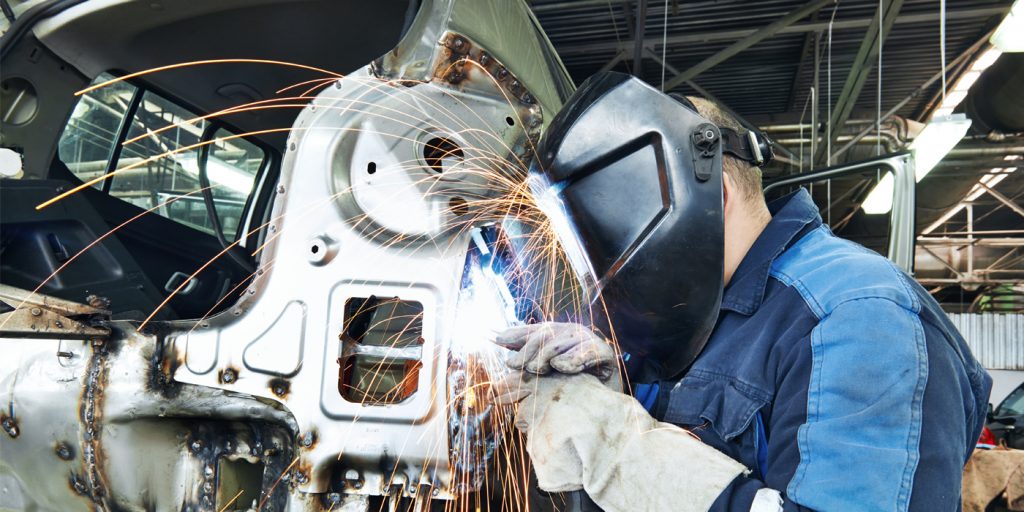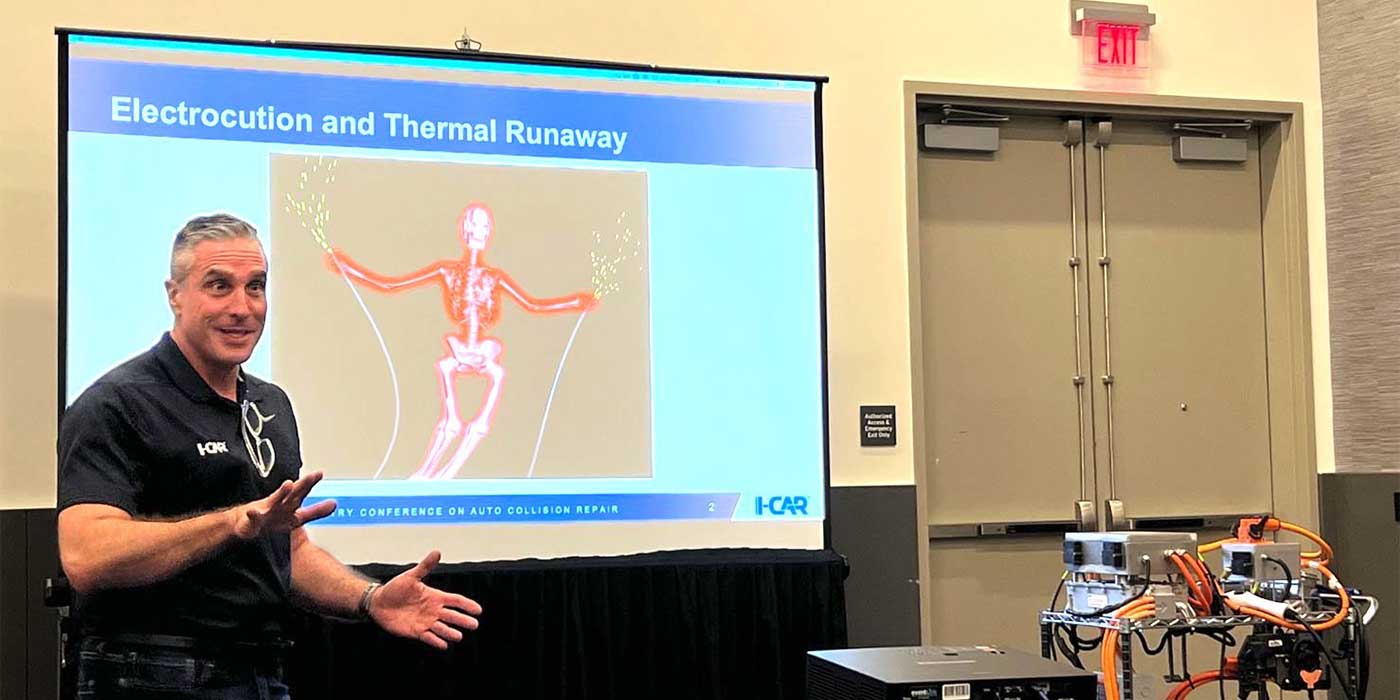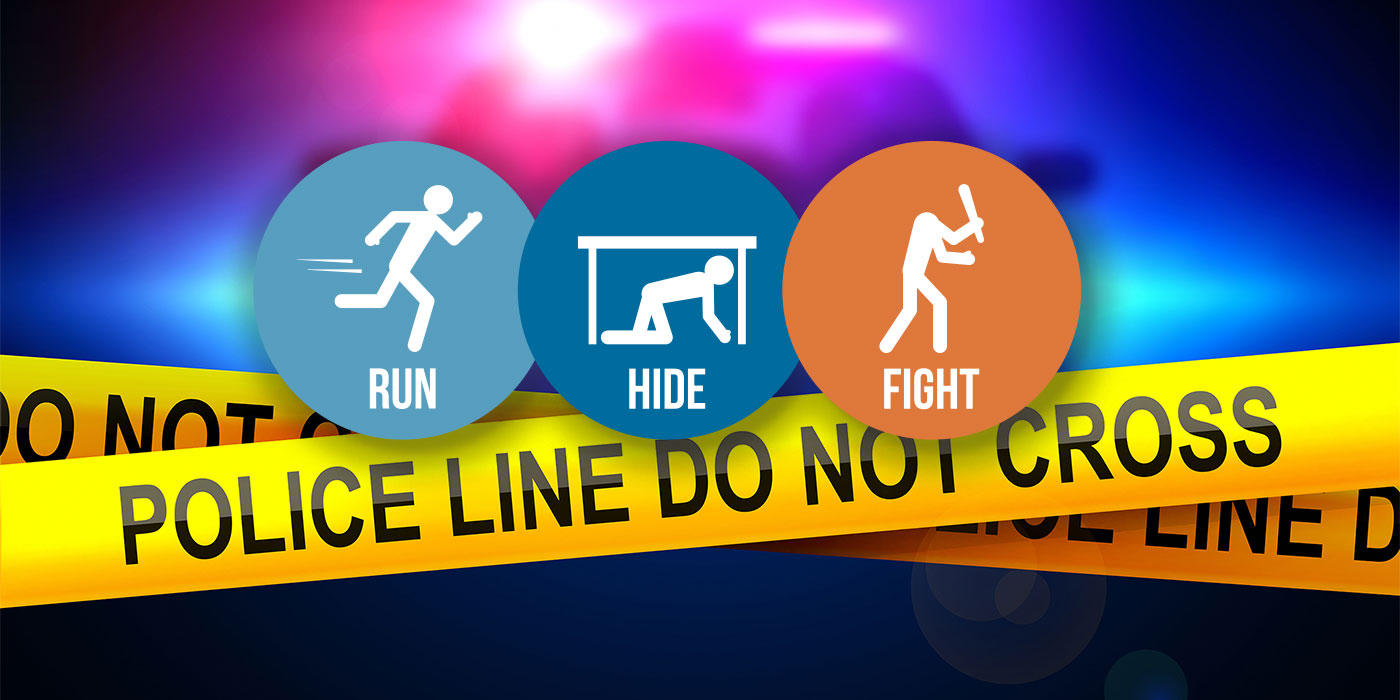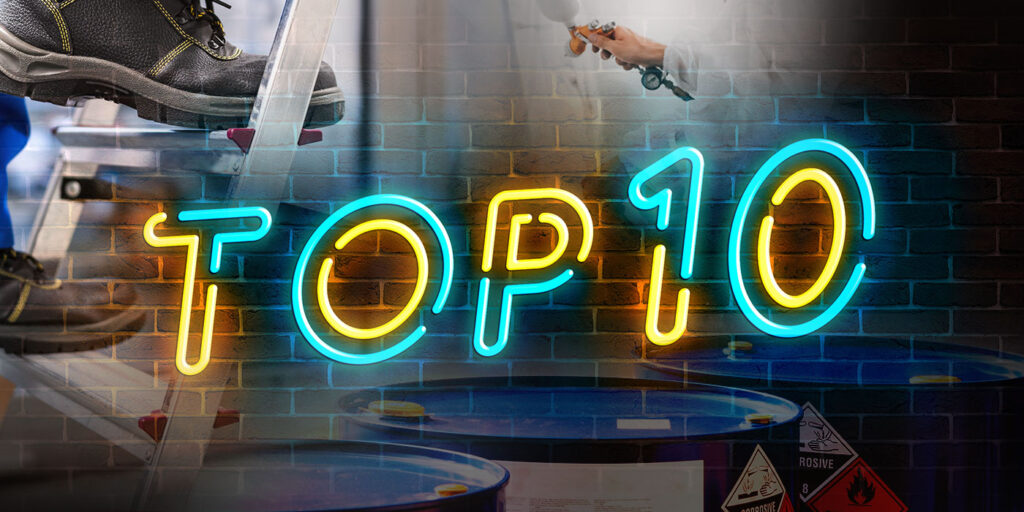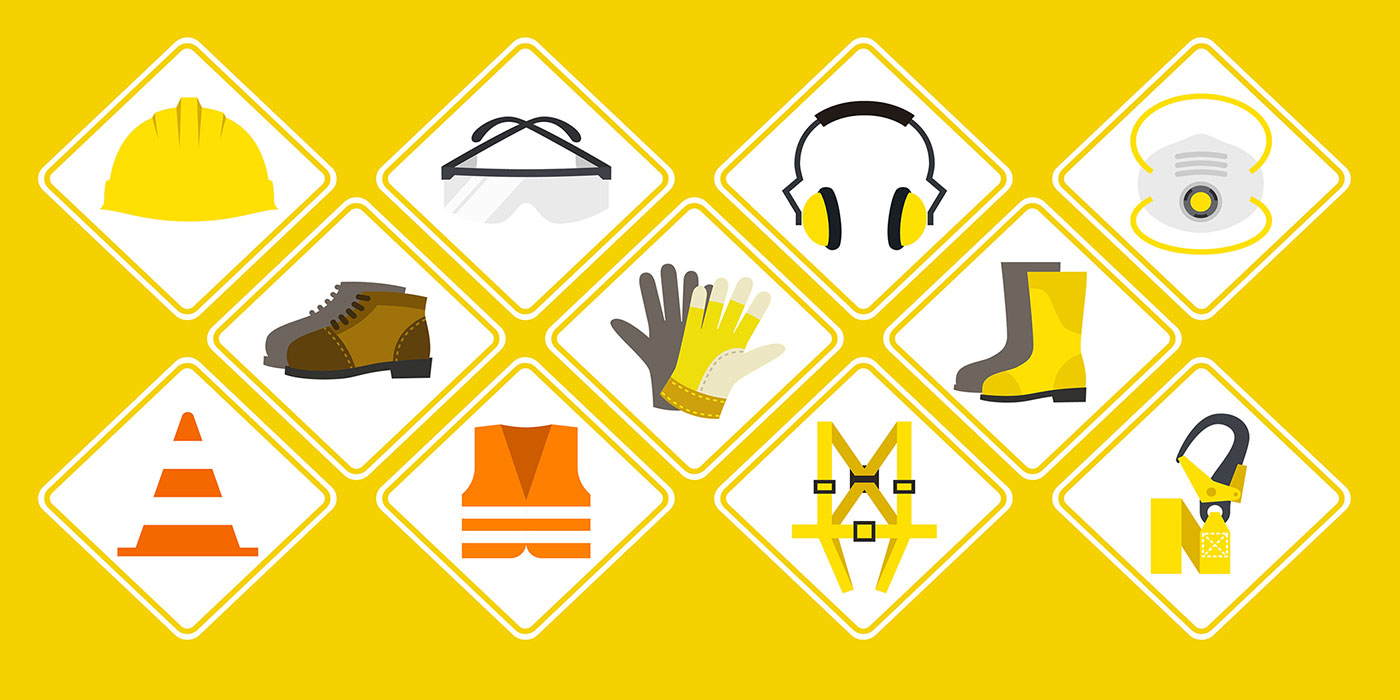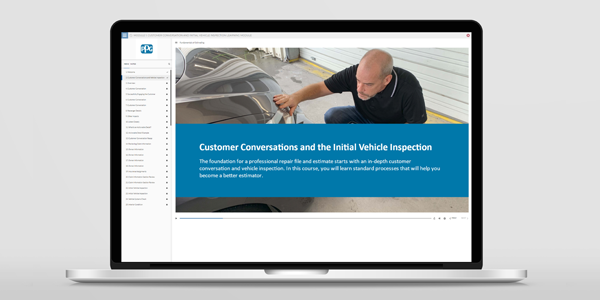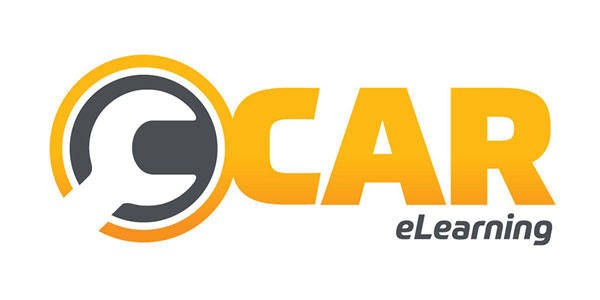I frequently receive phone calls from technicians asking questions that range from vehicle sectioning to sensor recalibration to which primer is used on a pinch weld that has been repaired. A lot of people have lots of questions and aren’t sure where to find the answers, but I’m more than happy to help.
The OE information is out there and must be looked up. Trusting the guy next to you may not be the right answer. I commend those who are seeking information in order to do the right thing. I, along with many others, will do all we can for these shops and technicians.
I received a call recently from a technician I’ve worked with for a long time who was struggling with a new welder the shop ordered. He was fairly excited at the prospect of a new welder as the other welder was completely useless. He was asking for set-up and operational procedures on a new squeeze-type resistance spot welding (STRSW) machine. I asked him why he and the other techs in the shop had not taken training on the welder, and his response was a common one that drives me nuts: “The manager did not want to waste the time, and said we (the techs) would figure it out.”
I Didn’t Know That’s How It Worked
The attitude that is still prevalent in the collision repair industry is that “technicians can figure it out,” whether it’s repairs or using new tools and equipment. I’ll give credit to the few who can figure it out. They do the research and practice in order to use something correctly. Kudos to them!
But we all know time is money, so think about this: how much time did it take for that technician to learn on their own versus being trained by someone? Also, remember that you have more than one technician. Will that technician teach the other shop techs? Now, picture a shop that has problems with repair quality or frustration over the equipment not working right. I get phone calls from techs who say, “This machine sucks” or “That equipment sucks.” Here is what I know: the equipment, more than likely, works fine. If it didn’t, nobody would buy or sell it. Usually, it boils down to operator error – not knowing how to use the equipment or not knowing the proper settings.
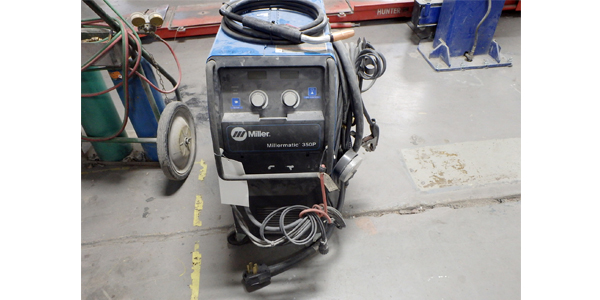
When a shop breaks down and asks for help, a common response I hear from them is, “Oh, I did not know that. Nobody showed me.” I’ll be brutally honest: this is the wrong way to learn. Training is a must for all in the shop. Even estimators and managers should be familiar with every piece of equipment. How do you know the capability of your shop (or better yet, limitations) based on the equipment you have? Everyone knowing what the end result should look like helps keep repair quality consistent in the shop.
You Can’t Afford Not to Train
Liability in the collision repair industry has always been a factor. With the changes in vehicle construction and all the new features offered in vehicles today, liability is becoming more of a focus. The bar on repair quality is that it has to meet OE specs, and the accountability of a shop meeting that bar is becoming more important.
Not having your technicians or shop personnel trained on what is needed to repair a vehicle correctly will cost you. In terms of warranty returns or rework, that can be measured in your daily shop reports. Your shop’s reputation depends on the quality of work you produce.
Now let’s look at liability of the repairs. Someone getting hurt because we didn’t bother to or could not afford to train would be a travesty. People trust us to do the job right. They do not realize what is at stake. Betraying that trust is unacceptable. Bad repair work never just affects one shop, it affects us all. The warranties and comebacks alone should convince a shop to train on all procedures and equipment.
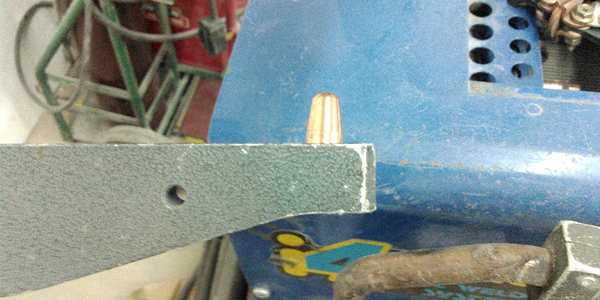
There is another angle that many shops miss. Technicians choose where they want to work. Many times, a shop with proper equipment and a willingness to improve a technician’s skills has an easier time hiring new techs. If a shop has technicians constantly trying to figure things out or feeling a lack of support from management, not only is there frustration but slowed production. In some cases, technicians leave. This is dollars and “sense” that will cost a shop. It has been proven that training on equipment increases production and repair quality in collision repair facilities. Training has also been proven to boost employee retention.
Take a Hike
Walk through your shop and take a look at your equipment. Don’t just glance at it but take a close look. Ask the technicians what they think about the equipment. The results may surprise you.
I can’t tell you how many times I’ve walked into shops for training and found equipment being used that shouldn’t have been based on its condition. I’ve seen everything from not enough power available for an STRSW machine to bent or missing targets on measuring equipment as well as outdated scan tools trying to scan new vehicles.
Some of the most extreme issues concern welders and measuring equipment. I’ve seen everything from technicians welding with no electrode tips to techs making a point-to-point measurement using a tape measure due to lack of training on a measuring system’s computer.
If you don’t feel like taking that walk through your shop, I recommend using an outside auditing service. Services like these can really open your eyes to what is truly going on in a shop. Sometimes it takes a different set of eyes to see what a shop really needs; we all become so busy we don’t always see even the obvious issues. These services also help to gauge improvements that have been made and where improvements still need work. It’s also beneficial that it’s an outside person versus someone in the shop who might play favoritism or be apathetic.
I’ve had shops tell me that it’s not a big deal when a technician is having problems using a welder. I would love to hear some of the stories from their personnel. You might be able to write a book, although I hope no one ever does.
The Best Equipment
The best equipment without training can become centerpieces for dust and merely take up space. A lot of money was spent on this equipment, yet nobody uses it. Or, the equipment is being used and is causing damage or is failing and nobody is even aware of this.
Shops spend a great deal of time researching equipment and listening to the recommendations of others on what to buy. One of the most important questions to ask is, “How is the service and training?” This part of the buying process should be as important as how much a tool costs. Without service or follow-up as well as training to use the equipment correctly, the best purchase can be wasted. Questions to ask a vendor include:
- Do you provide a service agreement or contract for maintenance?
- Do you provide training?
- Do you provide training for new hires or a refresher course if needed?
Seeking vendors who have programs to support the equipment they sell must be an important part of your purchase decision. You’ll need the initial training to learn to operate the equipment and maintain your investment.
Your new employees will also need to learn. Using somebody in the shop to teach new hires may not be the best idea as they may not have a full understanding of how the tool operates. Having the vendor come back and teach new hires and maybe a refresher course for current staffers is priceless.
There are companies out there who have stepped up their game to provide exceptional industry training and sales. There are even some companies who have created and promoted best practices. The training is out there and available; all you need to do is ask.
Training and Maintenance
Properly using equipment is probably the most critical factor in performing a proper repair today. Failing to train and failing to acknowledge this will be the reason some shops fail and lead to a long list of headaches and quality control issues as well as severe liability. If you’re an OE-certified shop, training is also a requirement on the specific equipment automakers mandate. Guessing is not allowed; correct repairs are an absolute in this industry.
Training also has to involve maintenance. Properly maintained equipment is as critical as training. Improperly functioning equipment can spell disaster for all the reasons we’ve talked about so far. The previously mentioned incident, where I saw a tech using an STRSW welder that was missing electrodes, was the result of both a lack of training and maintenance. To add to that story, the technician using that welder was told by another technician that it was okay.
Establish a maintenance program in your shop before it’s too late. Check equipment weekly. Once you feel like you’ve caught up, move to longer intervals if desired. Establish a habit of checking and maintaining your equipment. You paid a lot of money for it, so it should be taken care of. This is how we earn our living.
A Problem for Us All
Now think about this for a moment. I ask you, have you ever seen or been told about one of the issues I’ve discussed in this article? I’m willing to bet every single one of you has. And that is a problem for us all. BSB
Mitch Becker has been a collision industry trainer for 30 years. He can be reached at (612) 865-6229 or [email protected].

